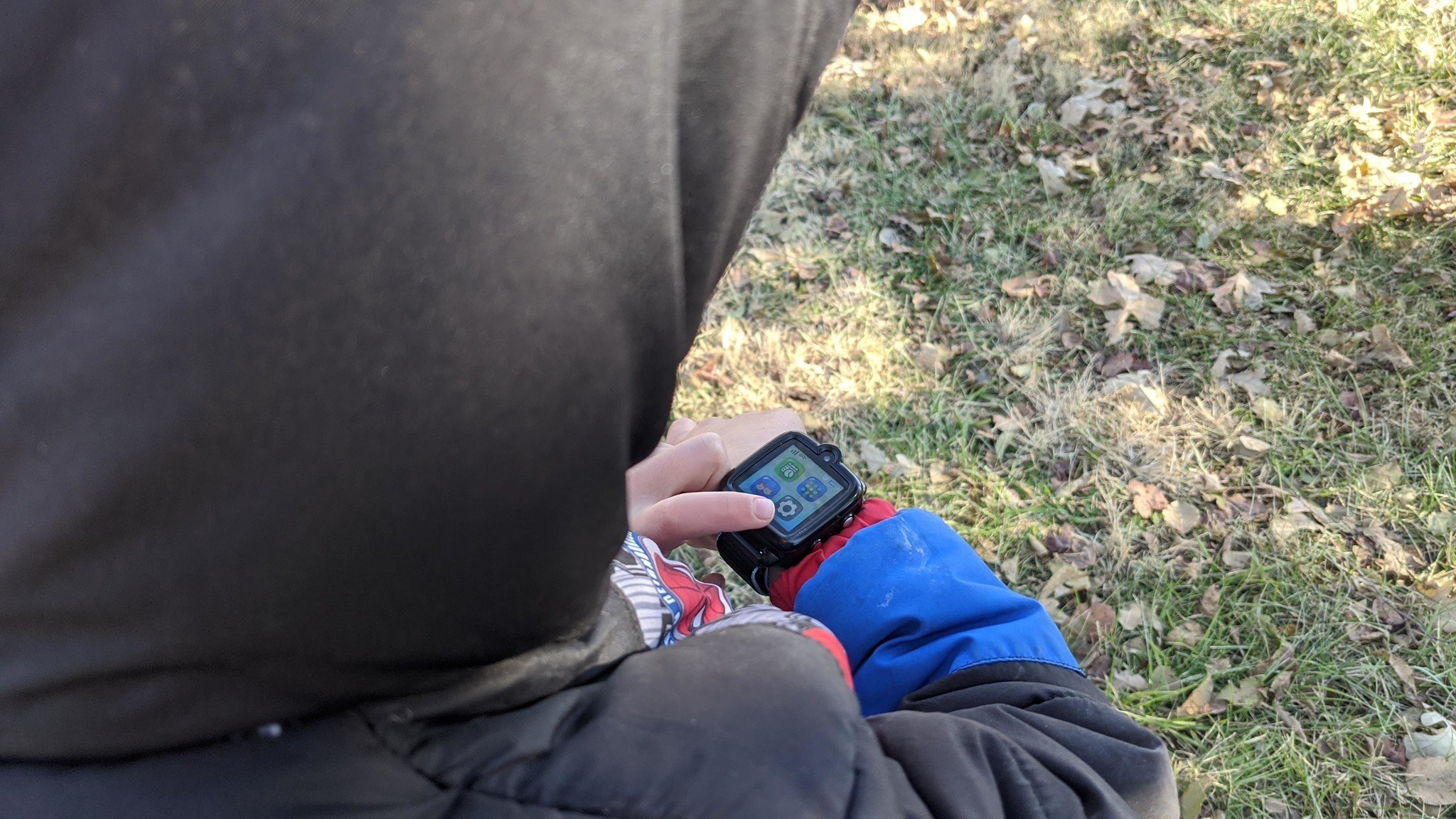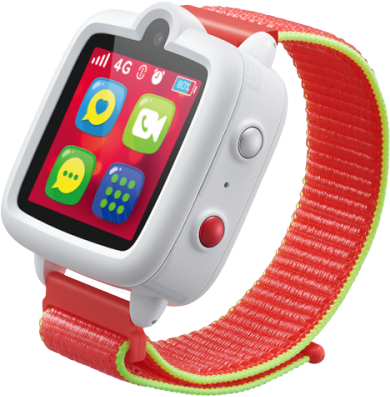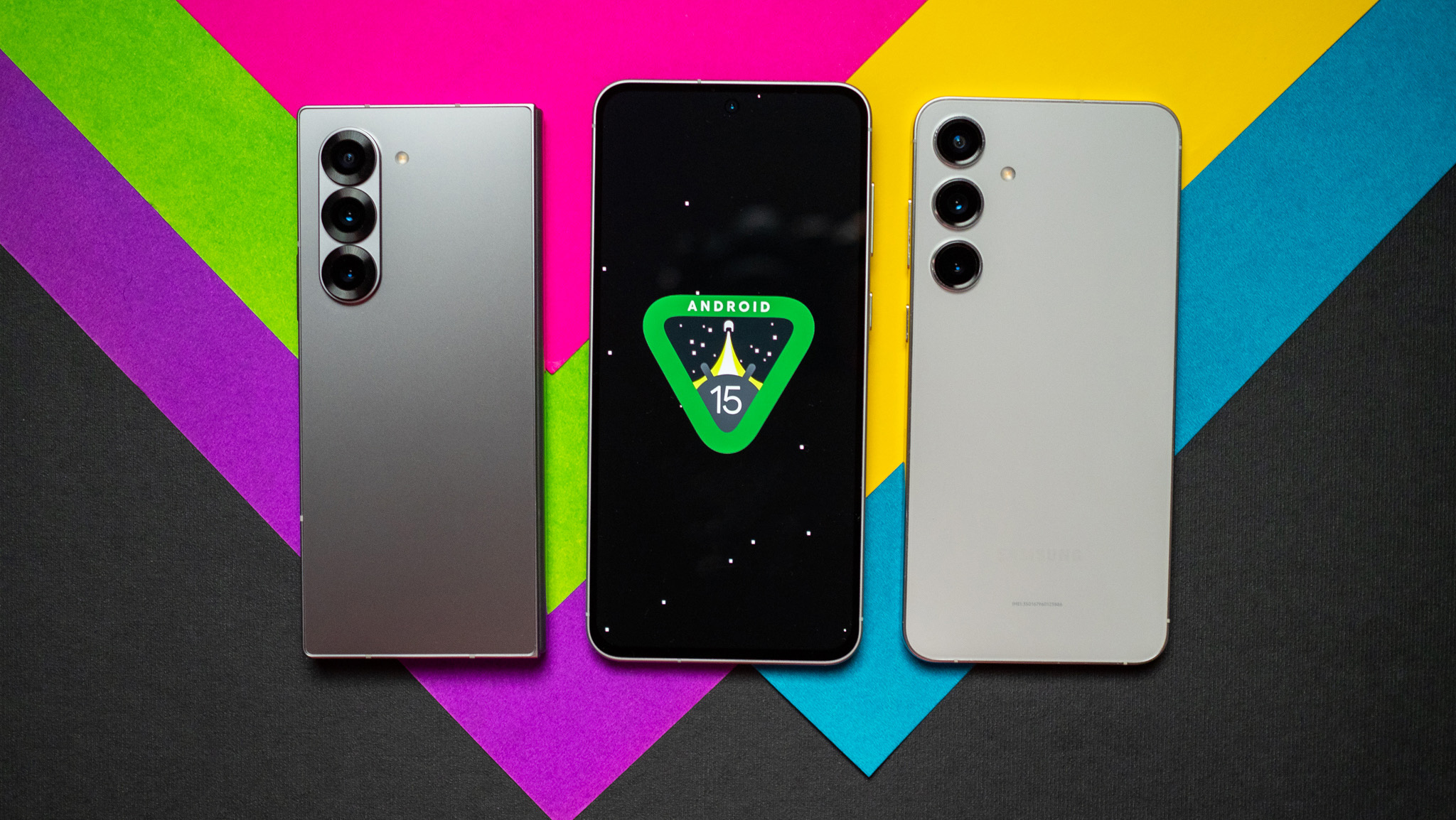Android Central Verdict
Bottom Line: If you are looking for peace of mind, a way for both you and your child to be able to communicate with each other, and to dip your toes into letting them have a phone, then the TickTalk 3 is a great start. It's durable, capable, and has the safety features you want as a parent. While it would be good to have geofencing options, a less bulky watch case, and better charging method — it's a solid option for a connected kid's smartwatch.
Pros
- +
Good voice and video call quality
- +
Simple software on the watch
- +
Flexible safety features
- +
Durable water-resistant watch case and screen
- +
The ability to set reminders and schedules
Cons
- -
It's a bit bulky
- -
Battery life could be better
- -
Missing geofencing feature
- -
Software on both the watch and phone could use improvements
Why you can trust Android Central
I love tech and gadgets and, for better or worse, so does my 7-year-old son. Through seeing me with various pieces of technology, he has started wanting some of his own.
He does have some classmates, friends, and cousins who have their own phone, but my wife and I are not prepared for that major step just yet. We do, however, see some practical uses for a connected device for after school pick-ups, location information, communicating when it's time to come inside — and a bit of fun, too.
The TickTalk 3 kids smartwatch, um, ticks most of those boxes, with a few important caveats.
TickTalk 3 What I like
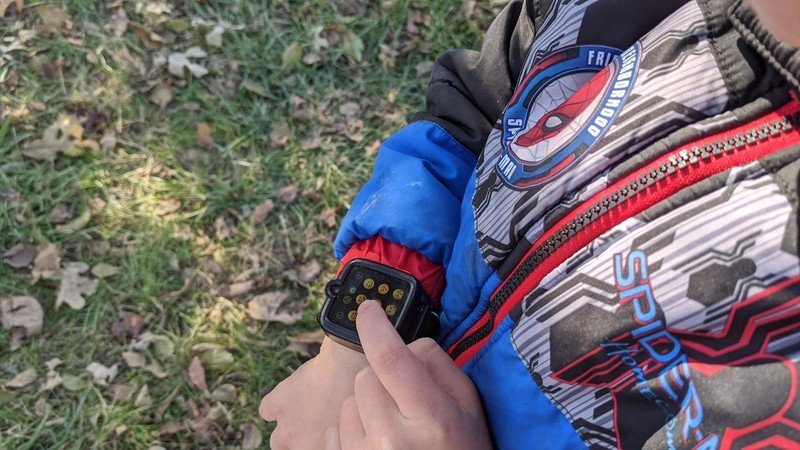
First thing's first: I believe a cellphone or connected smartwatch for a 7-year-old is unnecessary, but it can be convenient, and a very low-friction way of introducing particular communication dynamics within the family.
With that out of the way, this fully functioning cellular smartwatch stands out in a sea of half-baked kid's "smart products." The TickTalk 3 has a slot that takes a standard nano-SIM for any GSM-based network, like AT&T or T-Mobile (or, more likely, any of the lower-cost prepaid MVNOs that use their networks).
While you can take this to your own carrier and get a SIM for it, TickTalk has partnered with Red Pocket to provide prepaid service for as low as $10 per month. So, after activating the SIM card and going through the setup on the watch and partner phone app (for my phone), I gave it to my son.
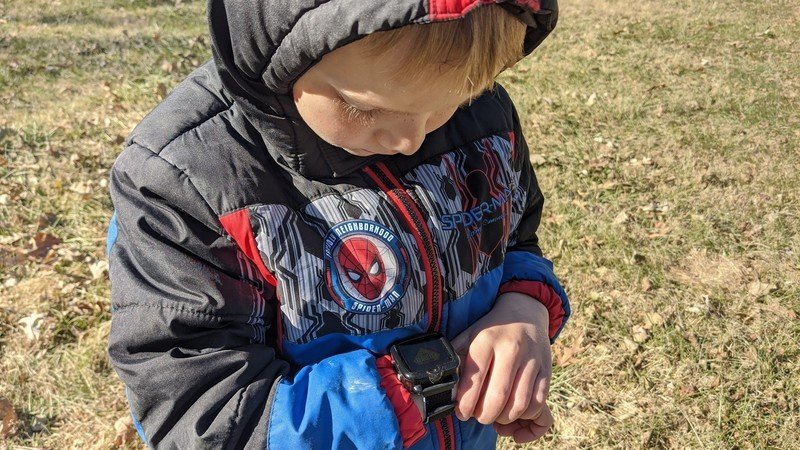
The watch itself may not be attractive, but it's durable and functional, and gets the job done well. It has a vibrant screen so my son can easily see the watch face and menus, even in direct sunlight. It's also IP67 water-resistant, which goes a long way to ensuring that the thing won't just stop working when my son inevitably dunks it in a pool or basin.
There are eight watch faces to choose from, and the same number of wallpapers. While you can't customize them or add your own watch faces and backgrounds, the ones that are there cover a good range of taste for most kids.
The screen has a respectable touch response, but it's designed to be less sensitive than an equivalent product for adults, for obvious reasons. Kids are hard on their things, and TickTalk doesn't want accidental calls being made, for example, after a bit of mistreatment.
The watch isn't the sleekest out there, but it is durable and even comes with an IP67 water resistance rating.
The TickTalk 3 has both 4G connectivity as well as Wi-Fi that can be used for voice calls, messaging, and even video chats. Yes, there is a camera on this watch. It's a 2MP selfie camera that has terrible quality, but it suffices for silly messages and video calls.
Since the watch has cellular and Wi-Fi connections, it uses both of those to help with location tracking. While you can't set up any geofencing for the watch, with active tracking you can get a history of its location during a chosen timeframe.
With the phone app, I'm able to schedule DND time to lock the TickTalk down so it can only be used to make calls. The device is still findable, and can make SOS calls to an emergency contact, as well as 911 calls using the buttons on the side, should a situation arise. All of these settings can be configured by parents through the free Android app.
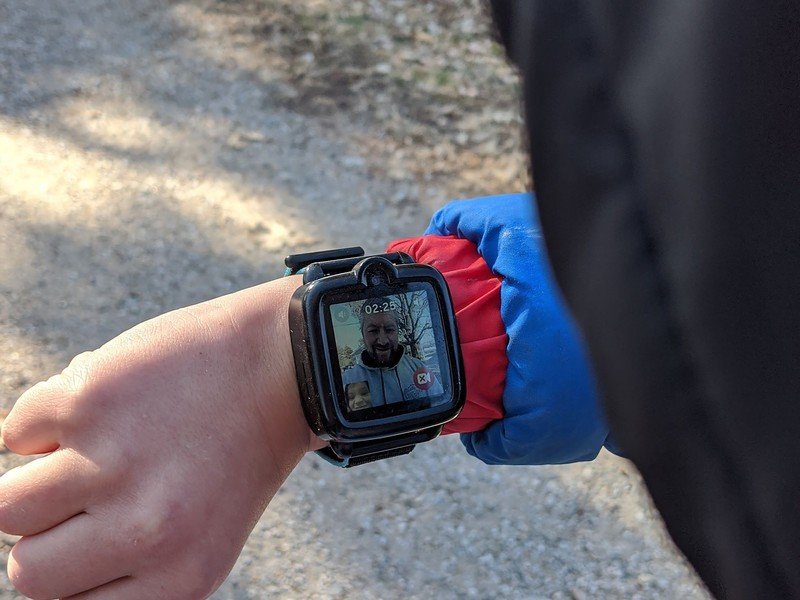
I've learned two things: I need to teach my son phone etiquette and that he ends every call and voice message with "I love you, Dad."
In terms of communication, the watch is capable of being a full-fledged phone — there's even a dial pad. The good thing is that the parental app has an option to place a firewall so that only approved contacts can call in or out; this also disables the dial pad. The same goes for messaging.
The video and messaging are handled entirely within the app on the phone, whereas phone calls look like any other call. The watch can send emojis — standard style, as well as some cute animated monster stickers — as well as pre-made messages or custom notes for the watch to send, along with standard voice memos. There is also a "radar mode" to let your child pair up with friends who also have a TickTalk 3 watch so they can chat together.
TickTalk 3 What I don't like
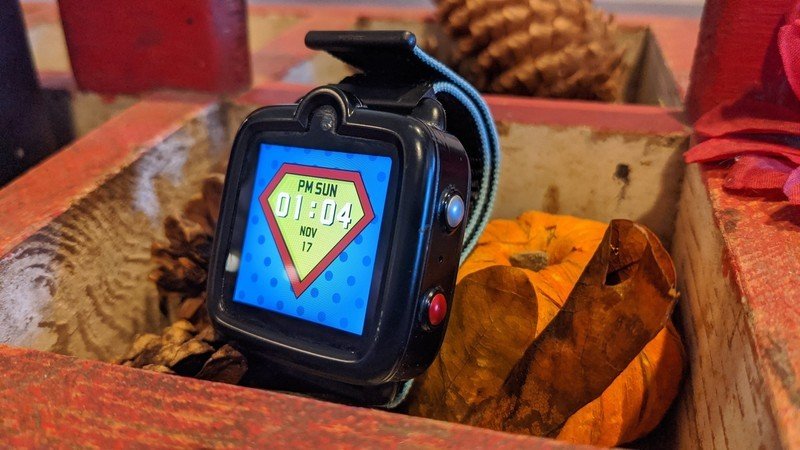
While the TickTalk 3 has a lot of promise, there are a few obvious shortcomings. In terms of cellular connectivity, it does a decent job staying connected in areas with strong signals, but indoors I found the reception to be spotty. With the watch only being GSM-compatible, it's limited to AT&T and T-Mobile, which is whom Red Pocket uses for their MVNO, and the Wi-Fi generally seemed stable and strong. If the watch was in a low reception area for cellular, well, RIP to the battery.
I wish I could specify what apps could be available on the watch and what couldn't.
In my testing with the TickTalk 3, the initial unit I got did have a severe battery drain when LTE and Wi-Fi were on and with limited signal available. The watch died within six hours and I was unable to revive it. On the plus side, the support from TickTalk, based in California, was great, and a replacement device showed up within a couple of days.
I had much better luck with the second device, so the issues could have merely been due to a malfunctioning unit. When using scheduled DND mode, the watch has been able to survive 12+ hours — there is also an airplane mode to stretch battery further.
The parent app works well but could be better thought through in the UI in places.
In terms of software, I'd like the ability to add a passcode to get into the settings of the watch to prevent unnecessary tampering. Things like APN settings, connectivity toggles, and other key functionality changes are available to be messed with by a curious child, which should have been locked down by default.
That being said, in our time with the TickTalk 3, the company issued three firmware updates — and nine since the start of 2019 —that helped connectivity and battery life. So they are actively improving the watch, and are open to some suggestions I made.
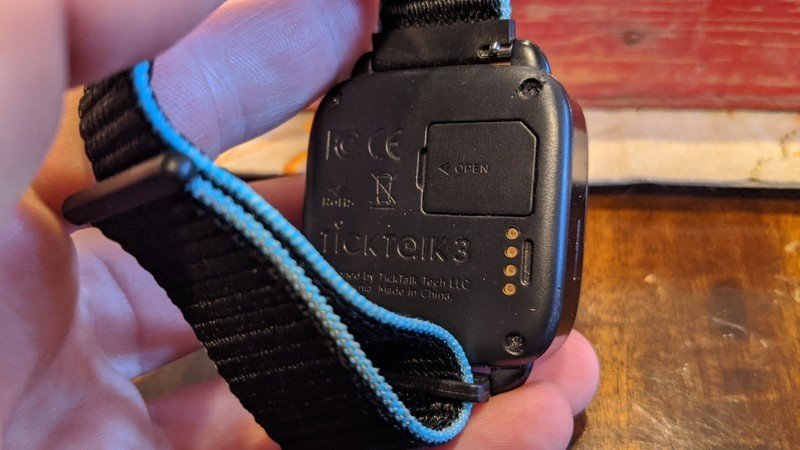
I would like to have a geofence location option for alerts should my son leave those areas.
My son liked the Velcro-style clasp watch band, which is a standard 23mm size, so it can be swapped out for something else should you want to. When it comes to charging the USB-A to a proprietary magnetic pogo pin that latches on well, but still is relatively easy to pull off too. TickTalk does offer a charging case as well as replacement bands on their site.
By no means does the watch charge quickly. The recommended recharge time from TickTalk on a low battery watch is 8-12 hours, so if the watch is essential for the next day, you or your child should get in the habit of charging it nightly.
TickTalk 3 Bottom line
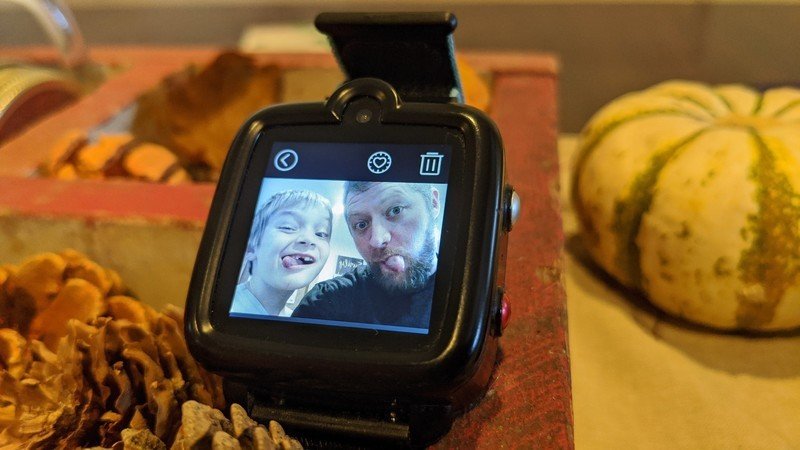
Every family and child is different, so whether you ultimately need a device like this is dependant upon your needs. If you have a child between 6 - 12 and see a need for a way to communicate with them, then it's a good option. Yes, you can find a phone for less than $170, but the durability, built-in safety features, and it will be much harder to lose with it strapped to a wrist.
3.5 out of 5
I enjoyed being able to set reminders for daily chores, homework to help keep a forgetful 7-year-old on task. We live in the country, and when he and his brother would go explore, it was nice to be able to message them that it was time to come inside. I'd get video calls to show me the "cool" thing they just found, and those are fun moments for both myself and my son. While the TickTalk 3 is far from perfect, it works well, and for $10 a month, it keeps us connected.

